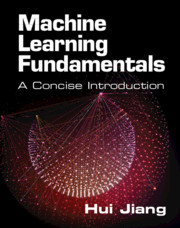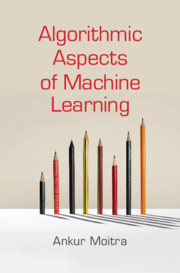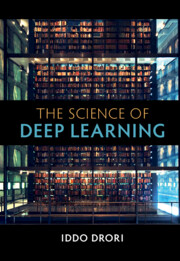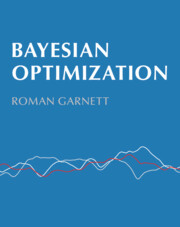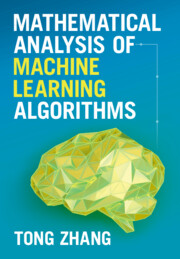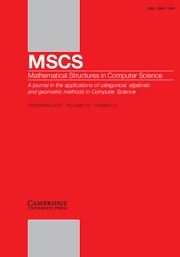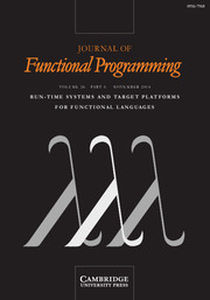Mathematics for Machine Learning
- Authors:
- Marc Peter Deisenroth, University College London
- A. Aldo Faisal, Imperial College London
- Cheng Soon Ong, Data61, CSIRO
- Date Published: April 2020
- availability: Available
- format: Paperback
- isbn: 9781108455145
Paperback
-
The fundamental mathematical tools needed to understand machine learning include linear algebra, analytic geometry, matrix decompositions, vector calculus, optimization, probability and statistics. These topics are traditionally taught in disparate courses, making it hard for data science or computer science students, or professionals, to efficiently learn the mathematics. This self-contained textbook bridges the gap between mathematical and machine learning texts, introducing the mathematical concepts with a minimum of prerequisites. It uses these concepts to derive four central machine learning methods: linear regression, principal component analysis, Gaussian mixture models and support vector machines. For students and others with a mathematical background, these derivations provide a starting point to machine learning texts. For those learning the mathematics for the first time, the methods help build intuition and practical experience with applying mathematical concepts. Every chapter includes worked examples and exercises to test understanding. Programming tutorials are offered on the book's web site.
Read more- A one-stop presentation of all the mathematical background needed for machine learning
- Worked examples make it easier to understand the theory and build both practical experience and intuition
- Explains central machine learning methods: linear regression, principal component analysis, Gaussian mixture models and support vector machines
Awards
- Finalist, 2021 PROSE Award - Textbook in the Physical Sciences and Mathematics, Association of American Publishers
Reviews & endorsements
'This book provides great coverage of all the basic mathematical concepts for machine learning. I'm looking forward to sharing it with students, colleagues, and anyone interested in building a solid understanding of the fundamentals.' Joelle Pineau, McGill University, Montreal
See more reviews'The field of machine learning has grown dramatically in recent years, with an increasingly impressive spectrum of successful applications. This comprehensive text covers the key mathematical concepts that underpin modern machine learning, with a focus on linear algebra, calculus, and probability theory. It will prove valuable both as a tutorial for newcomers to the field, and as a reference text for machine learning researchers and engineers.' Christopher Bishop, Microsoft Research Cambridge
'This book provides a beautiful exposition of the mathematics underpinning modern machine learning. Highly recommended for anyone wanting a one-stop-shop to acquire a deep understanding of machine learning foundations.' Pieter Abbeel, University of California, Berkeley
'Really successful are the numerous explanatory illustrations, which help to explain even difficult concepts in a catchy way. Each chapter concludes with many instructive exercises. An outstanding feature of this book is the additional material presented on the website …' Volker H. Schulz, SIAM Review
Customer reviews
Review was not posted due to profanity
×Product details
- Date Published: April 2020
- format: Paperback
- isbn: 9781108455145
- length: 398 pages
- dimensions: 252 x 177 x 18 mm
- weight: 0.8kg
- contains: 3 b/w illus. 106 colour illus.
- availability: Available
Table of Contents
1. Introduction and motivation
2. Linear algebra
3. Analytic geometry
4. Matrix decompositions
5. Vector calculus
6. Probability and distribution
7. Optimization
8. When models meet data
9. Linear regression
10. Dimensionality reduction with principal component analysis
11. Density estimation with Gaussian mixture models
12. Classification with support vector machines.
Sorry, this resource is locked
Please register or sign in to request access. If you are having problems accessing these resources please email [email protected]
Register Sign in» Proceed
You are now leaving the Cambridge University Press website. Your eBook purchase and download will be completed by our partner www.ebooks.com. Please see the permission section of the www.ebooks.com catalogue page for details of the print & copy limits on our eBooks.
Continue ×Are you sure you want to delete your account?
This cannot be undone.
Thank you for your feedback which will help us improve our service.
If you requested a response, we will make sure to get back to you shortly.
×

